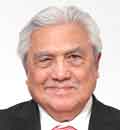Fourth of 5 parts
THE oligarchy is a multifaceted class, and the term is by no means neutral. Political science practitioners and political economists oftentimes differ in their definition and clarity of interpretation. I have adopted the contemporary definition as used by ordinary citizens, which in most cases is colored by their politics and heavily weighted by their acuities and biases. It can be vituperative and, at times, benign or even uplifting. Some popular definitions describe the nature of the oligarchy as a power structure that allows members to accumulate economic and political clout, influencing governance directly or indirectly and distorting functions and policies for their benefit to the exclusion of the rest of society. This complex power structure invariably is a composite of privately owned and controlled multiple large businesses involving allies or adjuncts in elective and appointive positions in government manning captive regulatory agencies. The latter describes aptly the special class of mostly elective officials, the political dynasts capable of passing on their political clout and entitlements to family members over generations.
Continue reading with one of these options:
Ad-free access
P 80 per month
(billed annually at P 960)
- Unlimited ad-free access to website articles
- Limited offer: Subscribe today and get digital edition access for free (accessible with up to 3 devices)


